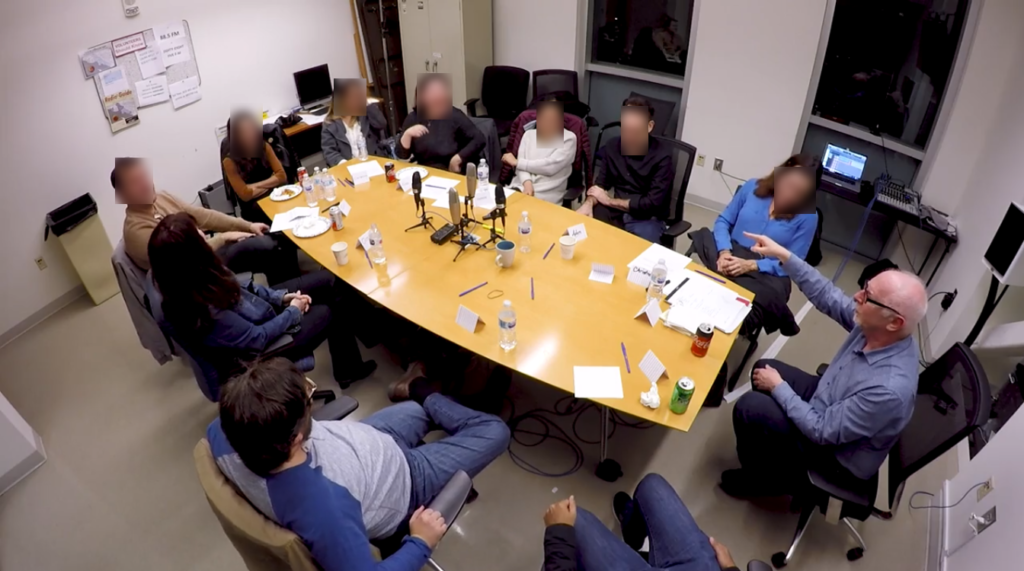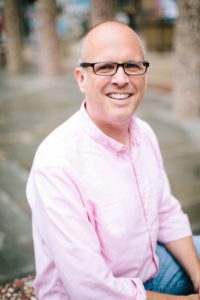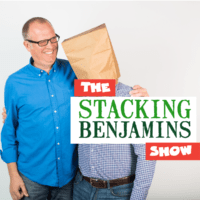
Today, I’m proud to present AQ2, our talent on talent study, to kick off Morning Show Boot Camp 31 in Chicago. It’s 1,000 DJs strong – a great sample of on-air radio personalities on commercial stations in the U.S.
But during many other weeks of the year, I can be found sitting at the end of conference table with a dozen strangers – talking about radio. Yup, focus groups, a staple in the world of politics when strategists want to hear from “real people” – how they phrase things, their emotions, and other campaign fodder. While these groups have absolutely no statistical significance, they are great tools for taking the emotional temperature of an audience. They can also be helpful in framing and developing questions for quantitative surveys.
I’ve been conducted them for radio stations since the mid-1970s, and I can tell you that without a doubt, I learn something from every group I moderate. But given that I’ve guided groups for every radio format imaginable – from Hip-Hop to Sports Talk to AC to Alternative – I’m not usually real surprised any more by what I hear.
But that wasn’t the case a few years ago when I conducted groups for a popular sports-centric podcasts. Even though this podcast was national (and even global) in its reach, it focused on a specific team. And with the help of the podcast’s email database, we were able to recruit a couple of groups in our chosen market.
It was an eye-opener to say the least. I learned more about podcasts that night from 24 people than I have poring over spreadsheets from research studies comprised of hundreds and even thousands of people.
That’s because podcast fans are passionate. They don’t just like their favorite on-demand shows – they LOVE them. And they’re excited to talk about them with an eye toward helping hosts and producers create even more satisfying audio content.
Focus groups can be truly effective ways to glean feedback from a target audience – if you’re a good listener and can control the chaos. Hearing why they like – or dislike – media in their own words can be priceless.
Radio broadcasters have been subjected to focus groups for decades. While challenging at times to hear real listeners dissecting your product, the rewards can be great. Now, podcasters will share in a similar experience.
I thank and applaud the host
At Podcast Movement this year, we’re going to moderate a focus group – live, on stage, in real time – as part of Jacobs Media’s “Broadcasters Meet Podcasters” conference track. Sure, there’s a high-wire/no-net aspect to this, but that’s what makes it interesting. Here’s the podcast we’ll be examining, with a description right from the horse’s – er, host’s – mouth.
It’s “Stacking Benjamins” – a lighthearted podcast about money that doesn’t take itself too seriously – hosed by Joe Saul-Sehy. I would love to tell you this podcast was our first choice for this session. In fact, we talked to several hosts and producers of successful podcasts – none of whom were enthusiastic about seeing real people talking about their audio programs.
I totally understand the fear and apprehension. But if podcasting is to grow and mature as a space, its producers, hosts, and sidekicks will have to get better, learn the craft, and improve their programs. That requires the courage to having their podcasts analyzed and examined by expert ears, as well as hear from the “end-users” – the listeners who download their episodes, buy their merch, and show up for their love shows.
Hats off to “Stacking Benjamins” host Joe Saul-Sehy. Here’s what he wants to learn next week at Podcast Movement. – FJ

At this year’s Podcast Movement conference, our Stacking Benjamins show will be the subject of a Jacobs Media-run focus group. What’s Stacking Benjamins? Our podcast is a light look at all things money, performed live from my mom’s half-finished basement.
With a style more like The Tonight Show than Dave Ramsey, my co-host, OG, and I (“OG,” of course, is short for the “Other Guy”) walk through financial headlines, interview an inspiring guest, and answer a couple of questions on every episode. It’s laid back by design, and only because this is an industry publication, I’ll admit that it’s built on the science of play (we’ll deny this point in public all day long). We believe if you don’t think you’re learning, you’re much more open to actually finding takeaways from our stories and struggles, and you’re also more likely to apply them.
I’d be lying if I said that this idea of an on-stage live focus group wasn’t at least a little frightening. Anyone who’s created a show knows that your personality, sweat, and emotions are all intimately invested in your little project. To your listener it’s a shared item. We make it, they listen. To us, however, it’s not shared at all. It’s a piece of who we are. So immediately my fears are many:
- “Do the listeners secretly hate it?”
- “Is my key takeaway going to be ‘Stop while you’re ahead?’”
- “Will they try to convince me to ‘vanilla’ the show (like some of our reviews suggest), so it sounds like every other financial podcast?
That last fear is the biggest. Because of the way we’ve constructed Stacking Benjamins, our non-negotiable is that we don’t want to bring the show into line with other money podcasts. I only made it in the first place because it was a “different” idea.
However, I would like to know a few things to move in THE OTHER direction, toward more differentiation. Here’s my shortlist:
1. What do people REALLY like about the podcast?
 My gut tells me that while financial nerds want us to clown around less, the larger audience wants us to own it more. They want us to make the show even more fun. I think we need to continue to study the science of play and make the show even better produced. I believe this is a two-step process: a) continuing to study comedy, and b) better marketing of the show.
My gut tells me that while financial nerds want us to clown around less, the larger audience wants us to own it more. They want us to make the show even more fun. I think we need to continue to study the science of play and make the show even better produced. I believe this is a two-step process: a) continuing to study comedy, and b) better marketing of the show.
Am I right? I’d love to know.
2. I was told early on that Stacking Benjamins was more of a “merch and rock-and-roll” brand than a “courses and learning” brand; that we should avoid the funnel and instead focus on building fans and community. Is this true?
We’ve tried to sell financial courses in the past and our sales were less than stellar. Our merchandise (shirts, mugs, etc.) seems to be proudly worn/used by people who buy them…but is that really our path? If we made a BETTER course, would people prefer to learn from us? If we hosted retreats, would people attend? What about more live shows? In 2018, we produced a three-city tour of comedy clubs and it went well, but should we do more live shows?
3. Do people tell their friends about us? If so, how do people describe the show?
Maybe this is an offshoot of the first question, but I’d love to know if our show is shareable. If not, what could we do to make it more share-worthy? When people talk about us, I’d love some clues about how they talk about us.
https://jacobsmedia.wistia.com/medias/txb5g7jyf5
4. What other shows do they listen to, and why do they tune in to those shows?
I’m not that worried about other financial shows. I think we stand out. I’m mostly interested in hearing about their wider interests. Are there comedy, storytelling, business, or news podcasts they prefer? I think we can learn from these genres and apply them to SB to make the show stronger.
5. What would make our community better for them?
Our overall goal — again, keep this on the down low — is financial literacy. What can we do better to help our listeners solve their money issues? Do they know about our Facebook group? Do they like it? Do they subscribe to our newsletter? Do they like it? Do they watch our other shows like Money With Friends or Doug’s Super Hilarious Joke of the Week? Why or why not?
While the idea of a focus group scares me, ultimately, I’m happy to face my fears. While this show is a big piece of me, it’s also my gift to the community. I hope the recipients feel comfortable talking about whether they like it and how they prefer the show. Could our connection be stronger? Maybe. I’m grateful that the Jacobs team would like to help us find out if there’s more for us in the tank, and I’m excited about finding better ways to reach our audience and fulfill our goal of teaching better money habits through relaxed conversations about money.
Listen to a recent episode of Stacking Benjamins:
I will conduct a focus group for the “Stacking Benjamins” team, live onstage at Podcast Movement in Orlando next week as part of our “Broadcasters Meet Podcasters” track. The session happens on Thursday, August 15th at 11:30 am in the Conway Ballroom. Host Joe Saul-Sehy will be on hand, and will meet and greet our focus group respondents. If you’ve never seen a focus group conducted for a podcast before, come see all the actionable information that you can learn.
- What To Do If Your Radio Station Goes Through A Midlife Crisis - April 25, 2025
- A 2020 Lesson?It Could All Be Gone In A Flash - April 24, 2025
- How AI Can Give Radio Personalities More…PERSONALITY - April 23, 2025





Leave a Reply